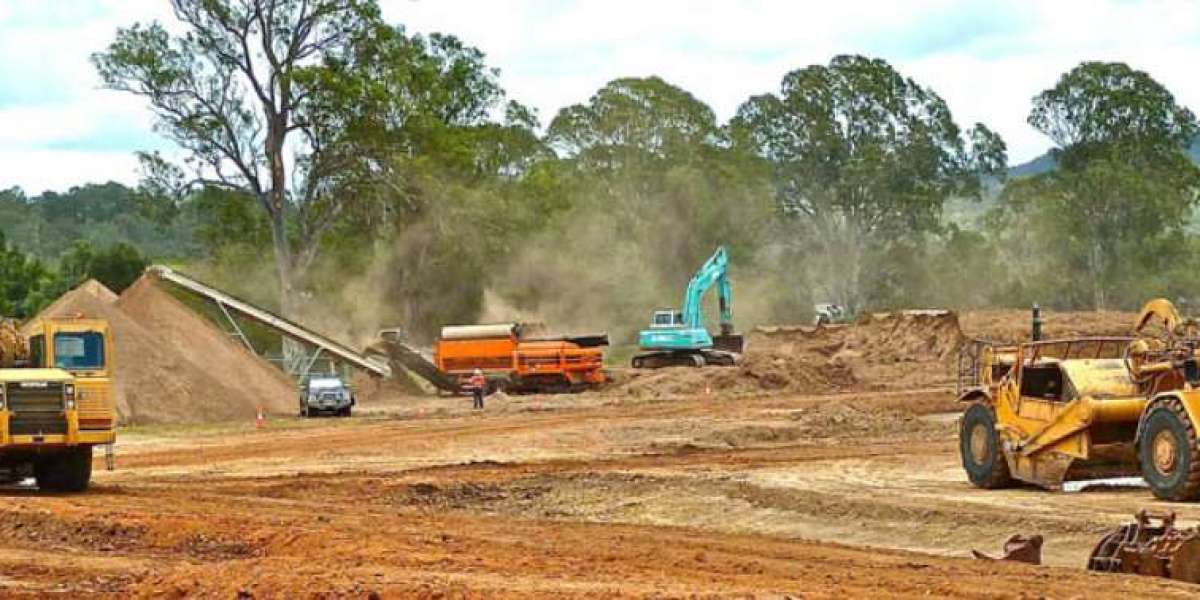They clear the land, handle drainage, grade the soil, and make sure everything is ready for a strong foundation. Choosing the right team is one of the most important steps in any project. A good contractor saves you time, money, and stress. A poor choice can lead to delays, safety risks, and costly mistakes.
So, how do you find the right sitework partner? Let’s break it down.
Why Sitework Contractors Are Essential
Sitework is about more than just moving dirt. It covers everything that prepares a site for building. This includes clearing trees, leveling the land, digging trenches, and managing water drainage.
Without proper sitework, a building cannot stand strong. Water may collect in the wrong places, the soil may shift, and the foundation may crack. That’s why choosing skilled sitework contractors is so important.
They make sure your project starts on solid ground.
Experience Makes a Difference
One of the first things to look for is experience. Sitework can be complicated. The soil may be rocky, there may be hidden pipes, or the land may slope in a difficult way.
An experienced contractor has dealt with these challenges before. They know how to solve problems without slowing down the project.
Ask questions like:
- How many years have you been in business?
- Do you work on both residential and commercial sites?
- What type of projects do you specialize in?
The more experience they have, the better prepared they will be.
The Right Equipment for the Job
Sitework requires heavy machinery. From bulldozers and excavators to graders and dump trucks, the right tools make all the difference.
A reliable sitework contractor will have well-maintained equipment. Old or broken-down machines can slow down a project and cause safety risks.
It’s a good idea to ask:
- Do you own your machines or rent them?
- How often are they serviced?
- Do you have the right equipment for my specific job?
This shows whether they can handle your project efficiently.
Safety Comes First
Working with heavy machines and unstable soil can be dangerous. That’s why safety should be a top priority.
Professional contractors follow strict safety rules. They train their workers, carry proper insurance, and take care to avoid accidents.
Before hiring, check that they:
- Have full insurance coverage
- Train workers for safe operation
- Follow all local safety laws
A safe worksite protects both you and the workers.
Licenses and Local Knowledge
Every area has its own building codes and permit rules. A good sitework contractor understands these requirements and helps you follow them.
Local knowledge is also important. Contractors who know the soil, drainage patterns, and climate of Kingston, Ontario, can plan better and work faster.
Hiring someone local saves time and prevents problems.
Compare Prices and Value
Cost is always a factor. But the lowest price is not always the best choice. Cheap work may mean poor quality, and that can cost you more later.
Get quotes from a few sitework contractors. Compare what is included. Ask if cleanup, hauling, or grading is part of the price. Make sure everything is written in a clear contract.
The goal is to find a fair price with good value—not just the cheapest number.
Check Reviews and Reputation
What past clients say is important. Look at online reviews, testimonials, and ratings. Do people say the contractor was on time? Did they communicate clearly? Was the job done right the first time?
You can also ask the company for references. Speaking to past clients directly gives you a better picture of their work quality.
Reputation is often the best clue about what to expect.
Communication Builds Trust
Clear communication makes every project easier. You should feel comfortable asking questions and getting updates.
The best sitework contractors explain the process in simple words. They answer quickly and are easy to reach. If someone avoids questions or gives unclear answers, that’s not a good sign.
Good communication saves time, reduces stress, and builds trust.
Look for Full-Service Options
Sitework often includes more than one step. Clearing, grading, trenching, drainage, and hauling may all be part of the job. Hiring one company that can handle it all is often the best choice.
A full-service contractor keeps things simple. You don’t have to coordinate multiple teams or contracts. Everything is managed in one place, which makes the process smoother and often more affordable.
Final Thoughts
Choosing the right sitework contractor is one of the most important steps in any project. They prepare the land, solve problems, and create the foundation for success.
When you check their experience, equipment, safety record, reputation, and communication, you’ll know if they’re the right fit.
A strong building starts with strong ground—and the right sitework contractors will make sure you have exactly that.
FAQs About Sitework Contractors
Q: What does a sitework contractor do?
A: They prepare the land for construction by clearing, grading, trenching, and managing drainage.
Q: Do all building projects need sitework contractors?
A: Yes. Almost every project, from homes to parking lots, needs sitework to make the land safe and stable.
Q: How long does sitework usually take?
A: It depends on the size of the project. Small residential jobs may take a few days, while large commercial sites can take weeks.
Q: Do I need permits for sitework in Kingston?
A: For many projects, yes. A professional contractor will help you handle permits and follow local rules.
Q: How do I know I’ve hired the right sitework contractor?
A: The right contractor has experience, good equipment, clear communication, strong safety practices, and positive reviews.



